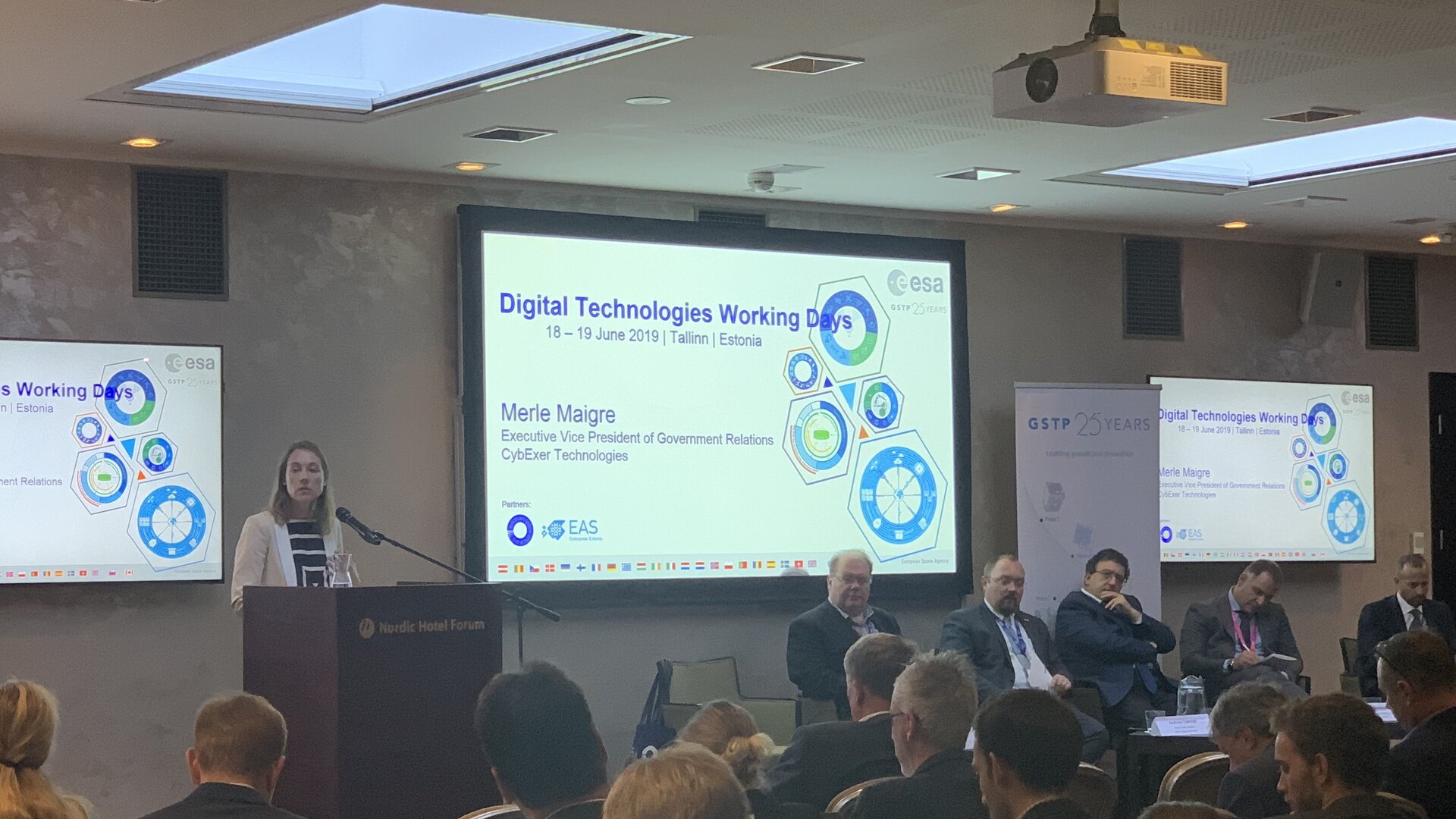Concrete ideas rise out of Digital Working Days
Last week, in Tallinn, Estonia, 140 experts in cybersecurity, artificial intelligence and digital engineering gathered for ESA’s first Digital Technologies Working Days event.
The two day event, hosted in conjunction with the Estonian Space Office, brought together academics, industry and non-traditional space players to discuss new ideas, technological developments and future needs in these three key areas.
Day one was kicked off by Franco Ongaro, the Director of Technology, Engineering and Quality at ESA who elaborated on how important the key themes will become for Space, going forward and the importance of bringing people from all backgrounds together to discuss them in order to breed creativity and foster innovations.
Franco Ongaro was followed by the Head of the Technology Programmes, Udo Becker, who focused on how the attendees could help GSTP by establishing networks with the Programme and between each other so that the event could bring about concrete developments and define future actions.
Throughout the first day nine significant speeches were punctuated with panel discussions. The keynotes ranged from Bianca Hoersch, Chief Digital Officer at ESA, discussing the building blocks needed to construct a secure digital ecosystem, to David Moloney, Principal Engineer AIPG at Intel who elaborated on modern solutions and changing perspectives in AI.
Day Two saw almost 20 fast-paced pitches given by a wide-variety of entities, often based on ideas from the new OSIP platform, where GSTP has received over 150 idea proposals investigating the specific problems and opportunities these digital technologies can have in space-related design. The pitches were followed by round table working groups focused on each theme, where lively debate and discussion saw people get into the detail of what is needed in each area.
“A key theme discussed was a desperate need for Artificial Intelligence to tackle the 'data overflow' crisis we are facing,” explained Gianluca Furano, On-Board Computer Engineer for ESA and one of the AI experts during the round tables. “Our systems are able to produce massive amount of information, and this trend is increasing at a pace that forces us to employ smarter systems, and the impressive evolution of AI methods/tools in the past 3 to 5 years is opening EU space industry up to a whole new world of challenges and opportunities.”
This move to data-centred AI was welcomed by attendees, who see it as an opportunity to free up engineers to apply their ingenuity and creativity to ideas instead of sifting through endless data.
The cyber-safety/-security panel discussed several questions, but often came back to the same key point –educating people on the importance of cybersecurity at every stage of technology development is vital to keeping systems and entire missions safe.
Overall, the event was welcomed by attendees from every background and opened up many discussions, built new connections and helped consolidate ideas for future technology developments.
The presentations for the event can be downloaded here.






